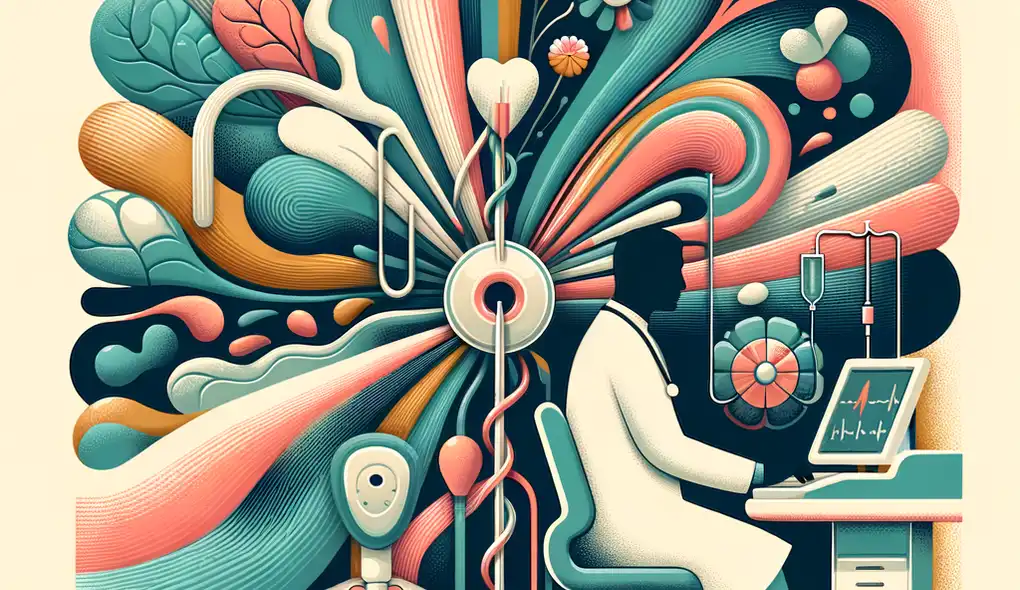How do you handle working under pressure in emergency situations?
Interventional Radiologist Interview Questions
Sample answer to the question
When working under pressure in emergency situations, I remain calm and focused on the task at hand. I prioritize the most critical aspects of the situation and work efficiently to address them first. I rely on my strong analytical and problem-solving skills to assess the situation quickly and make decisions. Effective communication is also key in these situations, so I keep my teammates and other medical professionals informed about the progress and any changes. Additionally, I maintain a high level of precision and attention to detail to ensure accuracy in my actions. Overall, my ability to stay composed, think critically, and communicate effectively allows me to handle working under pressure in emergency situations successfully.
A more solid answer
Working under pressure in emergency situations requires a combination of skills and strategies that I have developed throughout my career as an interventional radiologist. When faced with a high-pressure situation, I first prioritize the most critical aspects and focus on addressing them efficiently. For example, in a case where a patient is experiencing a life-threatening condition, I quickly assess the situation, make decisions based on my extensive medical knowledge and experience, and ensure that immediate interventions are implemented. I actively rely on my strong analytical and problem-solving skills to think critically and make sound decisions in a timely manner. Effective communication is crucial in these situations, and I prioritize keeping my teammates and other medical professionals informed about the progress and any changes in the patient's condition. This ensures a collaborative and efficient approach to patient care. In addition, my attention to detail and precision play a vital role when performing complex procedures under time constraints. I maintain a high level of focus and double-check every step to ensure accuracy and minimize risks. Overall, my ability to remain calm, think critically, communicate effectively, and pay attention to detail allows me to effectively handle working under pressure in emergency situations.
Why this is a more solid answer:
The solid answer expands on the basic answer by providing specific examples and details about past experiences and skills that directly relate to the job requirements for an interventional radiologist. It highlights the candidate's ability to prioritize, think critically, communicate effectively, and maintain attention to detail while working under pressure in emergency situations. However, it could still benefit from providing more specific examples or achievements to further demonstrate the candidate's expertise.
An exceptional answer
As an interventional radiologist with over 10 years of experience, I have encountered numerous high-pressure situations and have developed effective strategies to handle them. When faced with an emergency situation, I remain calm and composed, relying on my extensive medical knowledge and technical expertise. For example, in a recent case where a patient presented with a ruptured abdominal aortic aneurysm, I quickly assessed the situation, coordinated with the surgical team, and performed a life-saving endovascular repair. Throughout the procedure, I effectively communicated with the team, providing real-time updates and ensuring seamless coordination. My ability to think critically and make swift decisions, paired with my excellent hand-eye coordination, allowed for a successful outcome. In addition, I understand the importance of continuous improvement and staying up-to-date with the latest advancements in interventional radiology. I regularly attend conferences and participate in workshops to enhance my technical skills and stay abreast of emerging techniques. By actively seeking opportunities for professional development, I ensure that I am fully equipped to handle any emergency situation that may arise. Overall, my extensive experience, technical expertise, effective communication, and commitment to ongoing learning make me well-prepared to handle working under pressure in emergency situations as an interventional radiologist.
Why this is an exceptional answer:
The exceptional answer goes above and beyond by providing a specific and detailed example of a high-pressure situation the candidate faced and successfully handled. It showcases the candidate's expertise, technical skills, problem-solving abilities, and effective communication in emergency situations. The answer also highlights the candidate's commitment to professional development and continuous improvement, which aligns with the job description's emphasis on staying current with advancements in interventional radiology. The answer demonstrates a well-rounded and highly skilled candidate for the position.
How to prepare for this question
- Prepare specific examples of emergency situations you have handled and the outcomes achieved.
- Highlight your ability to prioritize and make critical decisions efficiently.
- Demonstrate your effective communication skills in high-pressure situations.
- Emphasize your attention to detail and precision when performing complex procedures under time constraints.
- Discuss your commitment to ongoing learning and staying current with advancements in interventional radiology.
What interviewers are evaluating
- Ability to work under pressure
- Analytical and problem-solving skills
- Communication skills
- Attention to detail and precision
Related Interview Questions
More questions for Interventional Radiologist interviews